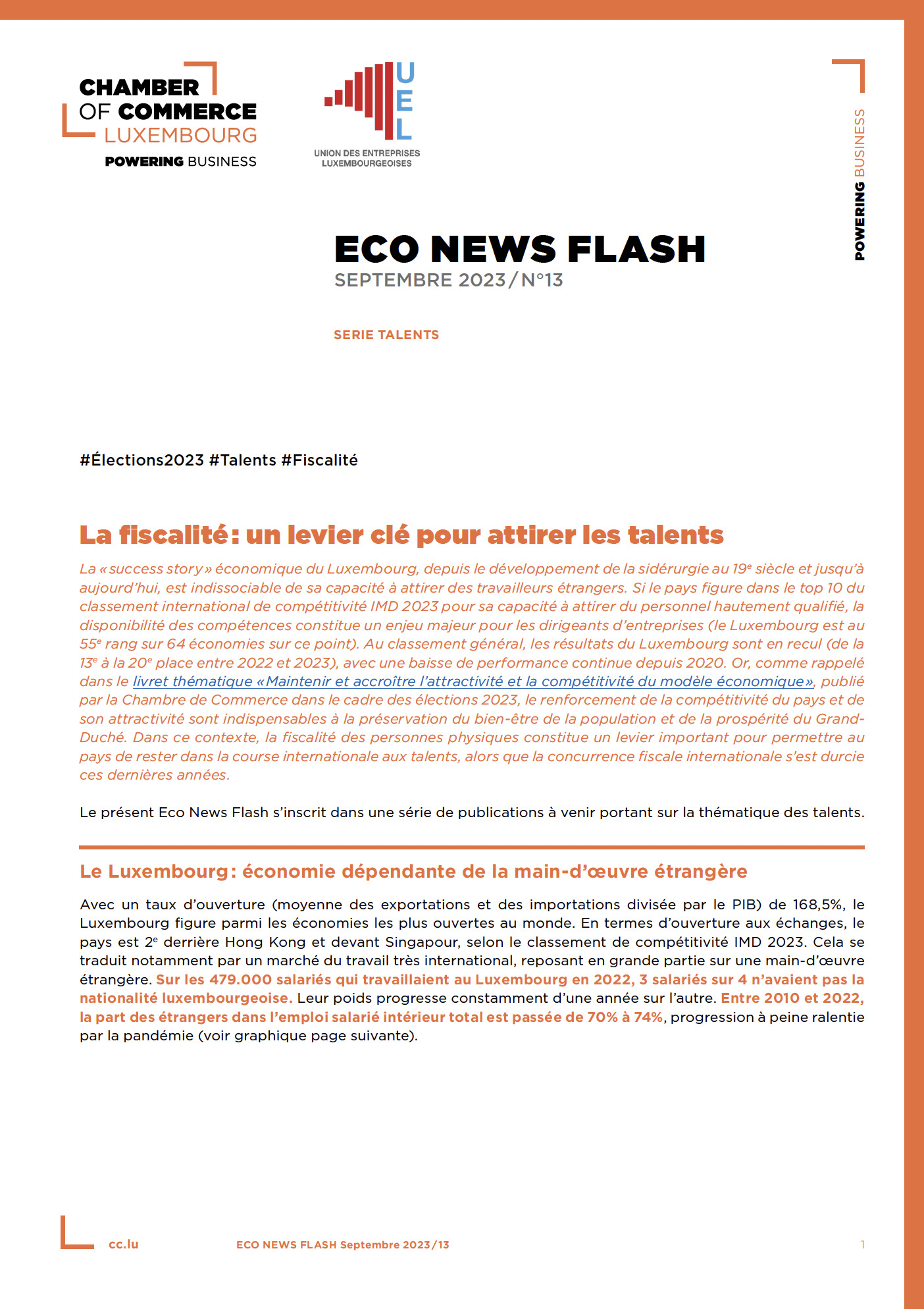Luxembourg’s economic success story, from the development of the steel industry in the 19th century to the present day, is inextricably linked to its ability to attract foreign workers. While the country ranks in the top 10 of the IMD 2023 international competitiveness ranking for its ability to attract highly qualified employees, the availability of skills is a major issue for business leaders (Luxembourg ranks 55th out of 64 economies in this respect). In the overall ranking, Luxembourg’s results are in decline (from 13th to 20th place between 2022 and 2023), with a continuous drop in performance since 2020. Yet, as recalled in the thematic booklet “Maintenir et accroître l’attractivité et la compétitivité du modèle économique” (Maintaining and increasing the attractiveness and competitiveness of the economic model), published by the Chamber of Commerce as part of the 2023 elections, strengthening the country’s competitiveness and attractiveness are essential to preserving the well-being of the population and the prosperity of the Grand Duchy.
In this context, personal taxation is an important lever for keeping the country in the international race for talent, at a time when international tax competition has become tougher in recent years.


